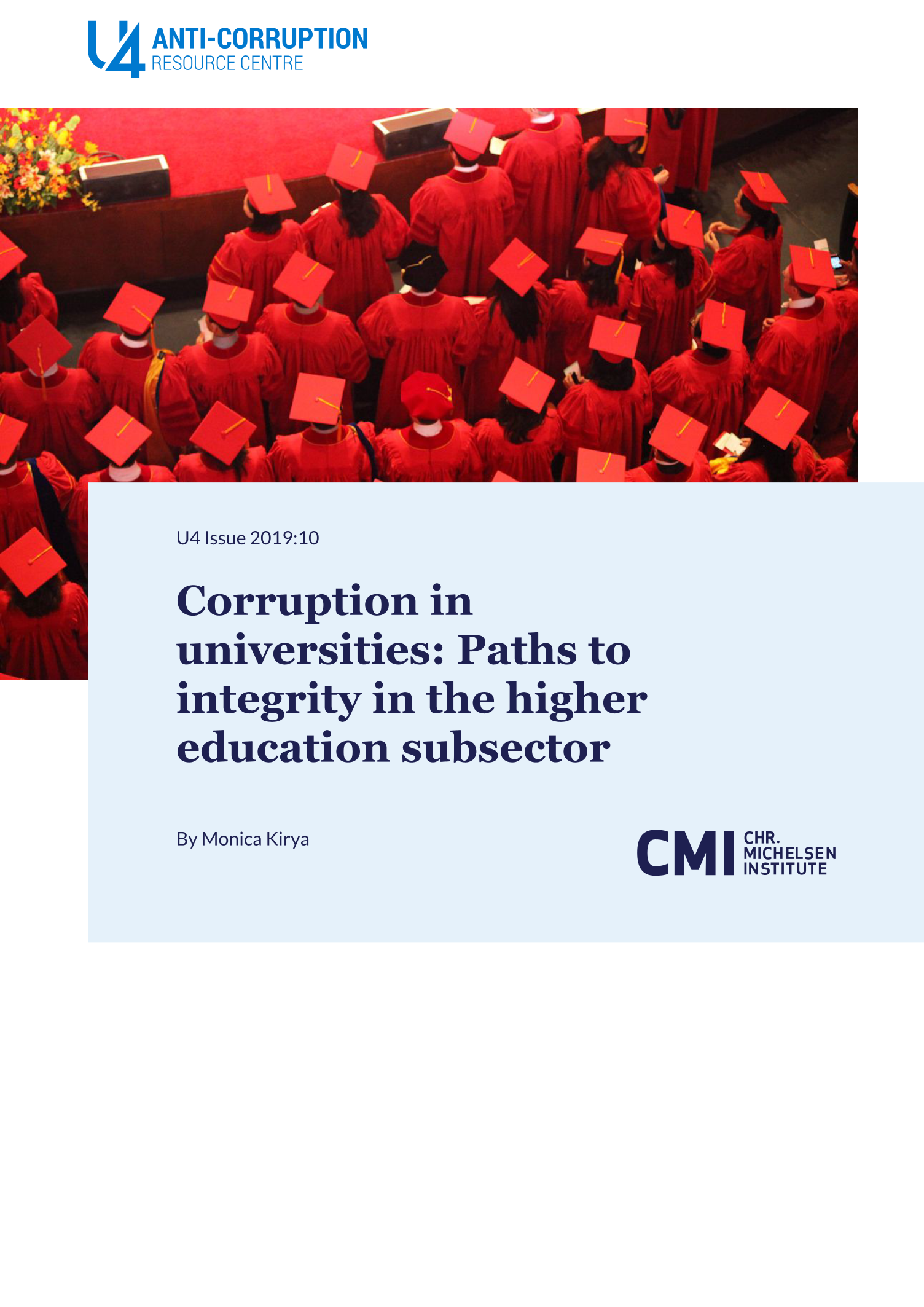Main points
- Corruption in higher education is growing global problem with grave implications for societies. Universities in developing countries face unique challenges arising from the recent liberalisation and subsequent rapid expansion of the subsector.
- Corruption in higher education takes various forms. Political manipulation of university affairs is common, as governments and ruling parties often interfere in the running of institutions. Higher educational institutions can be captured by political patronage networks for political or financial gain. Unearned credentials may be granted to politicians, their kin, and cronies.
- Other types of corruption include favouritism and nepotism in student admissions and staff appointments, corruption in licensing and accreditation, diversion of university or research funds, and procurement fraud.
- Academic dishonesty – plagiarism, essay mills, false research, examination fraud, and fake degrees – is rampant in both developed and developing countries.
- Sexual exploitation, mainly of female students, faculty, and staff by males, is a serious problem in higher education. Sextortion is defined as a form of corruption in which sex is the currency of the bribe.
- Various organisations are making efforts to tackle corruption in higher education. Governments, universities and other tertiary institutions, as well as civil society all have important roles to play.
- Donors should use international development assistance to strengthen anti-corruption compliance in the universities they partner with for scholarships and research grants; strengthen accreditation agencies; and support information technology solutions, such as anti-plagiarism software and fraud-proof degree certificates. Beneficiaries of international scholarships should be equipped to spread academic integrity norms in their home countries.
